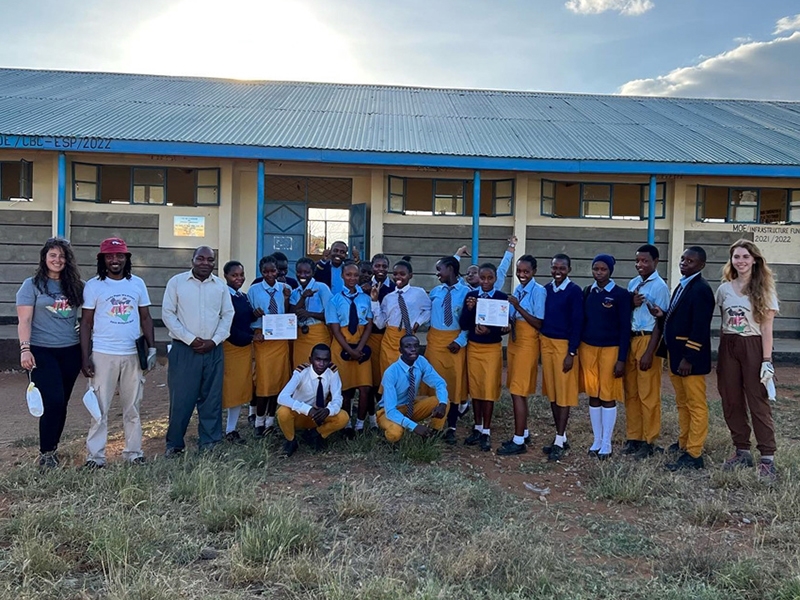
A U of A research group is trying to reduce human-wildlife conflicts, and stop future pandemics, by conducting research on bats and their viruses in rural Kenya. As part of this, graduate student Reilly Jackson has been studying bats living in people's homes to understand how people can be exposed to bat viruses. Her work has taken her into the homes of hundreds of Kenyans to understand why bats choose to live in certain houses and how people and bats interact in these shared spaces.
"In the buildings we visited, homeowners always had many questions about the bats and wanted to understand what they were and why they were in their homes," Jackson said. "Many people had misconceptions about bats and often believed they were bad omens and would steal from people. It was important to me to help answer their questions and demonstrate that bats actually benefit us humans."
Bats are important to human society; they eat insects that pester people and their farms, pollinate fruit trees and spread fruit seeds around the landscape. To spread this awareness, and correct common misconceptions, Reilly and fellow U of A lab members Tamika Lunn, a post-doctoral fellow, and Isabella DeAnglis, a graduate assistant, worked with Kenyan biologists to hold education sessions with student and adult groups in rural Kenya.
They ramped up education efforts this past summer and visited almost 700 elementary school students, high school students and adult community members in the region. During these talks, the team chatted with people about what bats are, why they are important to the environment and how to live safely with them.
Reilly said, "There were always so many great questions during these discussions! People loved seeing the bats and it was great to show everyone that the bats aren't scary, they're just small mammals that feel safe in the dark."
Topics
Contacts
Reilly Jackson, doctoral student
Department of Biological Sciences
865-209-8391, rtj006@uark.edu